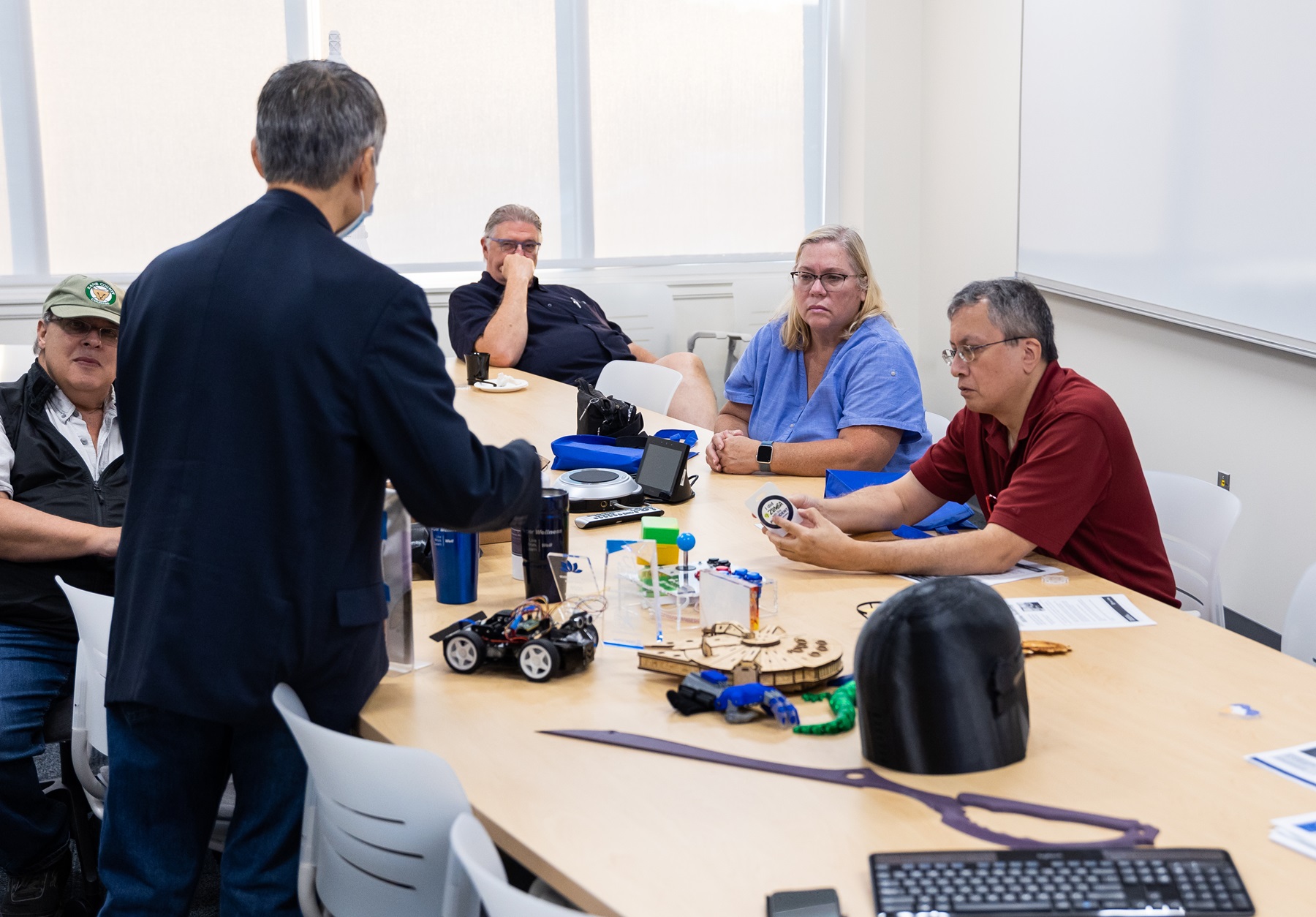Harper College is closed on Friday, April 18, for Reading Day.

 Joy N. and her husband were married for 24 years before he passed away. It was a life
filled with work, family and travel, the very basics of order and stability. Joy found
it difficult to rearrange the threads of her old life after his passing.
Joy N. and her husband were married for 24 years before he passed away. It was a life
filled with work, family and travel, the very basics of order and stability. Joy found
it difficult to rearrange the threads of her old life after his passing.
She found purpose and fulfillment by enrolling in Community Education courses at the Harper College Lifelong Learning Institute (LLI), where she can join book discussion groups and get a discount on courses in a broad array of subjects that interest her.
“I love history, politics and art,” she said. “There are so many courses that present these topics in depth. We read, discuss and write, which means we are forced to think! Intellectual stimulation is so important, especially as we get older – we can’t be mentally lazy.”
Research has shown that learning new skills can increase older adults’ cognitive abilities and reduce the risk of developing dementia. Community Education classes also provide social interaction, which has been shown to improve memory and relieve depression.
“I have made some very close friendships, and that opens up a whole new social landscape,” Joy said. “Our class discussions are very lively, and we’re not afraid to voice our opinions. In one group, we all go out to lunch after class to continue talking.”

For more than 20 years, the LLI has offered experiential and discussion learning programs for mature adults. Fun and relevant courses are taught in a seminar format, so students don’t have homework or take exams. Instead, they have spirited discussions, participate in hands-on activities and forge new connections with peers.
LLI Program Leader Dee McConnell explained that the average class size is five students, mainly retirees who have completed college degrees.
Courses are taught by Harper’s full-time and adjunct faculty and community members with deep expertise in their fields; some are retired educators. Instructors find teaching for the LLI means their students are especially interested in class topics.
“Students are taking these classes because they’re really interested in the course material,” McConnell said, “so the engagement our instructors get is sometimes more than they get in a for-credit class.”
A sampling of upcoming spring courses includes:
Courses on castles, East Asian art, Star Trek, Harry Truman and artificial intelligence were offered this semester, too. Selections are based on instructor and student interests, with guidance from a student advisory board.
In addition to courses, the LLI hosted its first Chautauqua earlier this semester. Chautauquas gained popularity in the 1920s as Americans shared their intellectual ideas in salon and discussion settings where they viewed presentations and then discussed them. The event at Harper focused on American folk music and featured presentations by performers portraying Bob Dylan and Carl Sandburg along with live music from Harper’s own Back Porch Revue.
There have been hurdles to overcome in the past 20 years, most notably the COVID-19 pandemic. LLI staff made a quick pivot to online courses and partnered with other Illinois community colleges to share resources. This program won an award for its creativity and collaboration from the Illinois Community College Board. The switch was so successful that Scott Cashman, senior manager of Community, Career and Corporate Education, said online options will likely continue.
“I think there will always be an online presence in community education,” Cashman reflected, “and I can see the Lifelong Learning Institute having 15-20% of its classes online.”

Community colleges know there’s more to education than earning undergraduate credits. Programs like the LLI exist to broaden connections, from the most senior to the youngest members of our communities.
“You really can be a lifelong learner at Harper College,” Cashman said, adding that there is no upper age limit for the LLI and Harper’s summer InZone program enrolls students as young as 6.
“At one point we thought it was crossword puzzles that kept the mind operating at full capacity, but now we know it’s really the power of connection with other people,” McConnell said. “We offer that power of connection with your instructors, with information and with each other.”
Cashman agreed, noting that feedback from students indicates the LLI makes a difference.
“We’re giving people opportunities to do things they can’t do elsewhere,” he said, “and it makes me feel good to be able to share a program like ours with the community.”
For Joy, community education is an important part of healthy aging, and more.
“Harper College and its LLI Program were a proverbial lifesaver for me after the death of my husband,” she said. “I have learned so much and met so many people. We enjoy being a part of Harper’s beautiful campus. It’s good for the soul.”
To learn more about LLI, call 847.925.6300, visit the program webpage or sign up for the LLI newsletter.